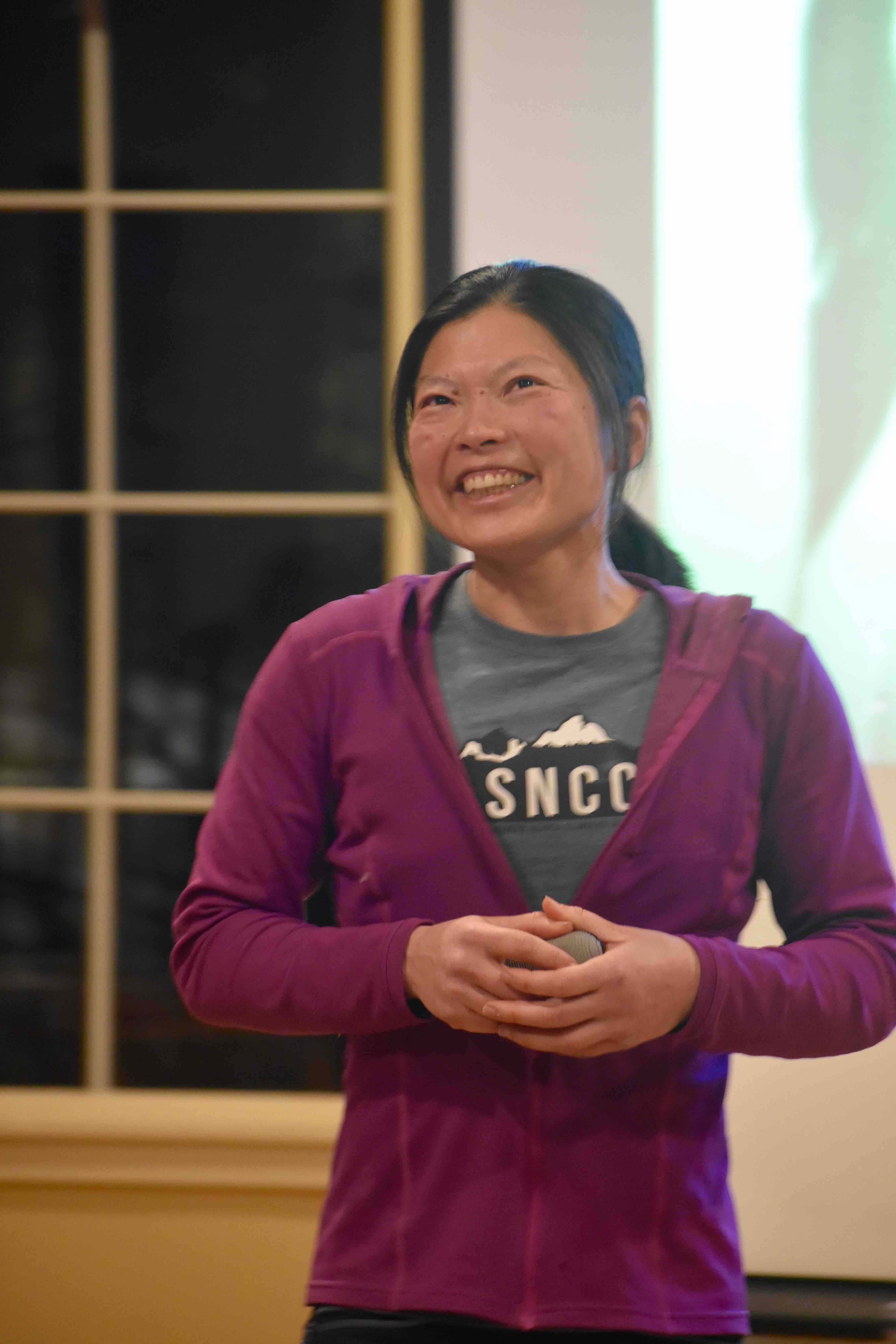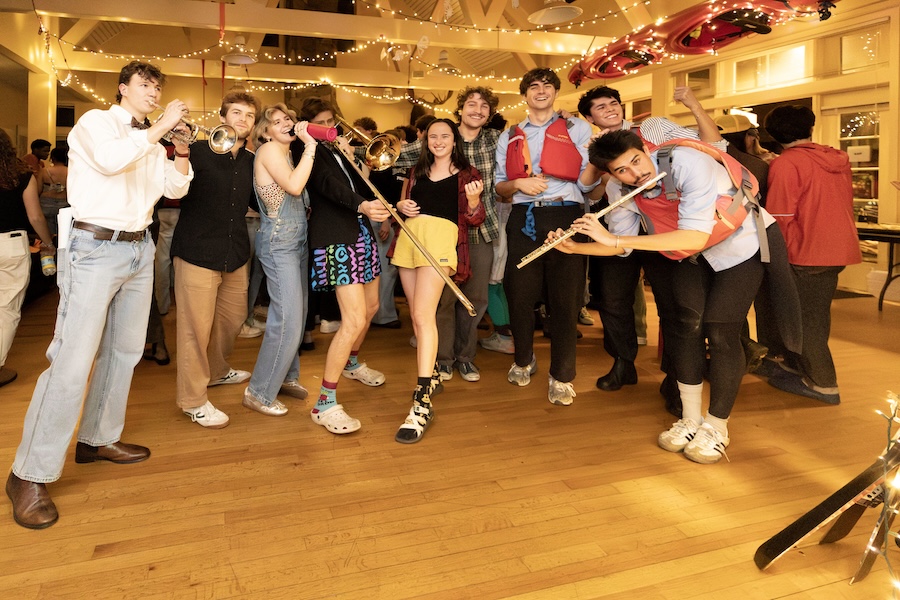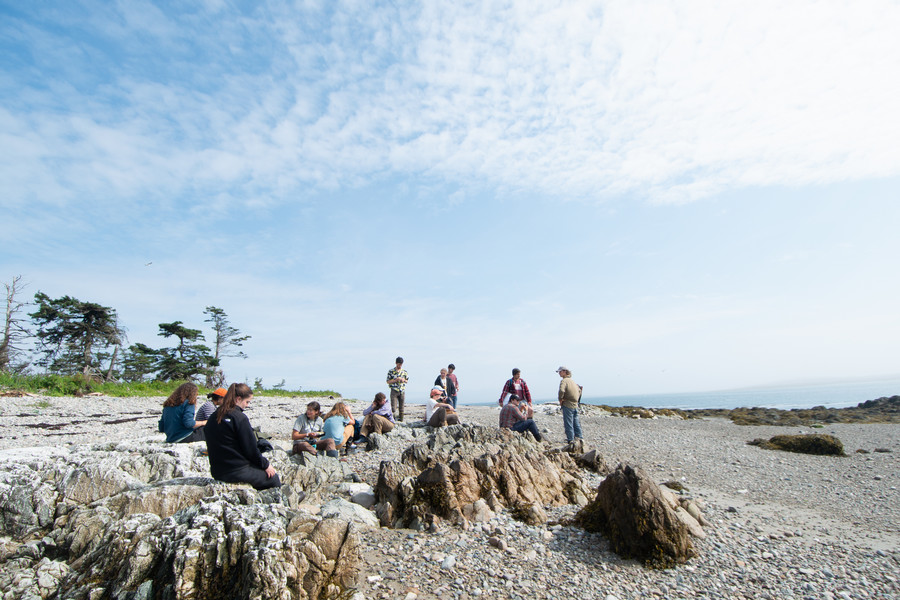A Taiwanese-American Climber Shows Bowdoin Students Another Way Up
By Aleksia Silverman ’19
Underhill famously questioned the gender disparity in her sport, asking, “Why can’t a woman lead a good climb?”
Her words resonated with Yi, who is a climber, outdoor educator, and computer scientist. She is also author of the award-winning memoir The One Who Sleeps On The Cliff which has been published in Chinese and English.
Yi recently spoke at the Bowdoin Outing Club about her personal experiences as a first-generation immigrant and as an Asian woman in a field dominated by white men.
Yi’s rock-climbing career began after she moved from her home city of Taipei to Philadelphia to pursue a PhD in computer science. Although Taipei is surrounded by mountains, few of Yi’s friends—either from her hometown or her Taiwanese peers at the University of Pennsylvania—felt that outdoors expeditions were “part of their culture.”
Taiwan’s “dominant culture of studying hard” dissuaded Yi from venturing outdoors, she said. However, after she got a taste of rock climbing in the United States, she began to find similarities between it and her technical studies. “Climbing is like computer science,” she said. “If you go down to a clear level, it’s just zero and one, but there’s so much potential. With just one tool you can use lots of things…but you use yourself to do experiments.”
Yi’s first job was with the Appalachian Mountain Club; later, she became a group leader at Thistledew Camp, a program for troubled adolescent women in Minnesota. She continued to travel the world to pursue climbing expeditions.
Although Yi is an accomplished rock-climber and a certified instructor, she said she suffered from “internal struggles” and a perpetual feeling of inadequacy. She recounted one story of how, after her rock-climbing educator exam, she was told that although her rock-climbing skills were good, she might feel more comfortable in another position because of her English language skills. “The hardest thing about being in a social minority group is being unsure about your own abilities,” Yi said.
Some of her doubt was alleviated after The Alpinist, a climbing magazine, reached out to Yi for an article. The story was well received, and her inbox was flooded with messages and “positive reinforcement” from others who felt similar challenges. Yi now teaches and climbs with a much more diverse field and feels more confident in her abilities. “I do have all these struggles, but I feel comfortable with myself,” Yi said. “It took me a long part of my life to realize I was good.”
Students at Bowdoin welcomed the perspective from Yi’s personal story. Jhadha King ’20, a computer science major who has participated in the Outing Club's Out of the Zone leadership training program, was initially drawn to the talk because of Yi’s research in artificial intelligence. “It was nice to see someone always striving for more,” King said. “It was cool listening to Yi talk through the history of her passion.”
Meera Prasad ’19 works as an officer of diversity and inclusion at the Bowdoin Outing Club. “The talk was a great way to bring light to the issues minorities face in the environment in a very direct and personal way,” Prasad said.



